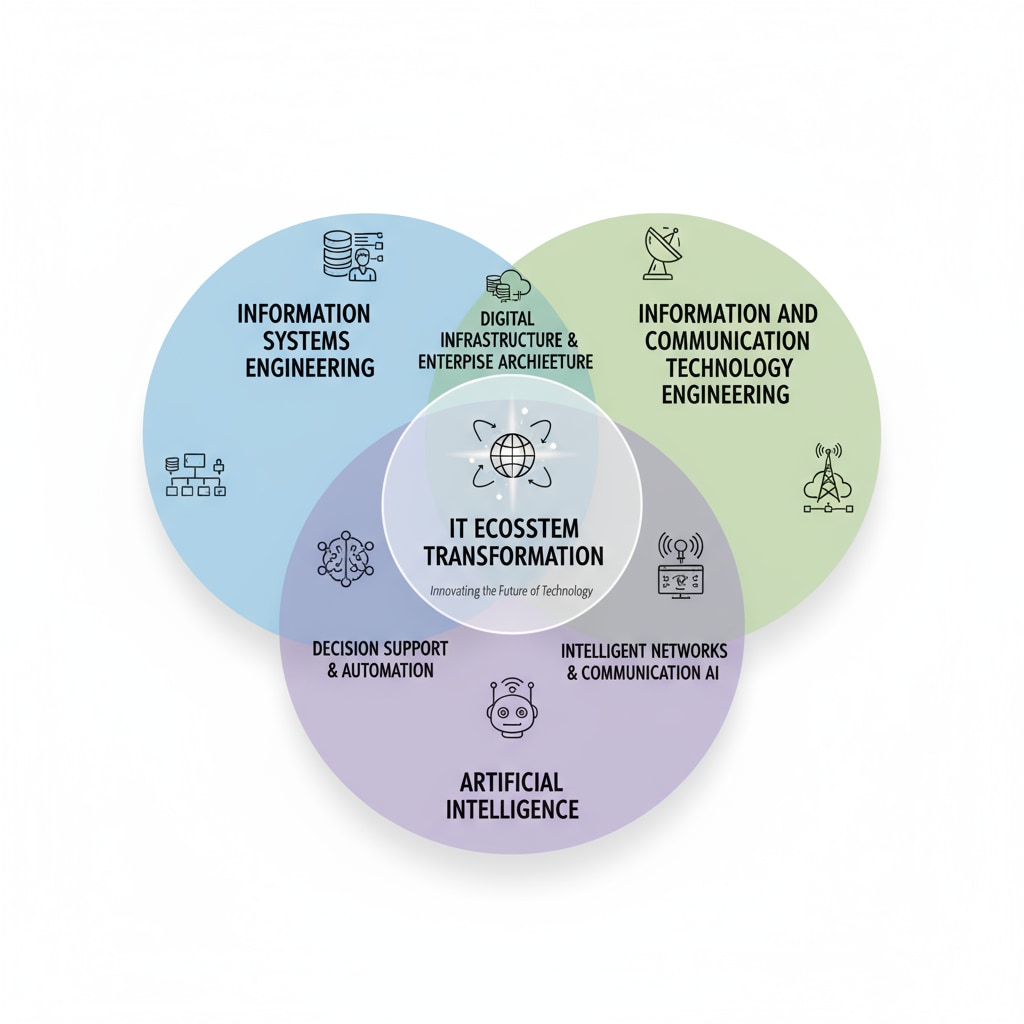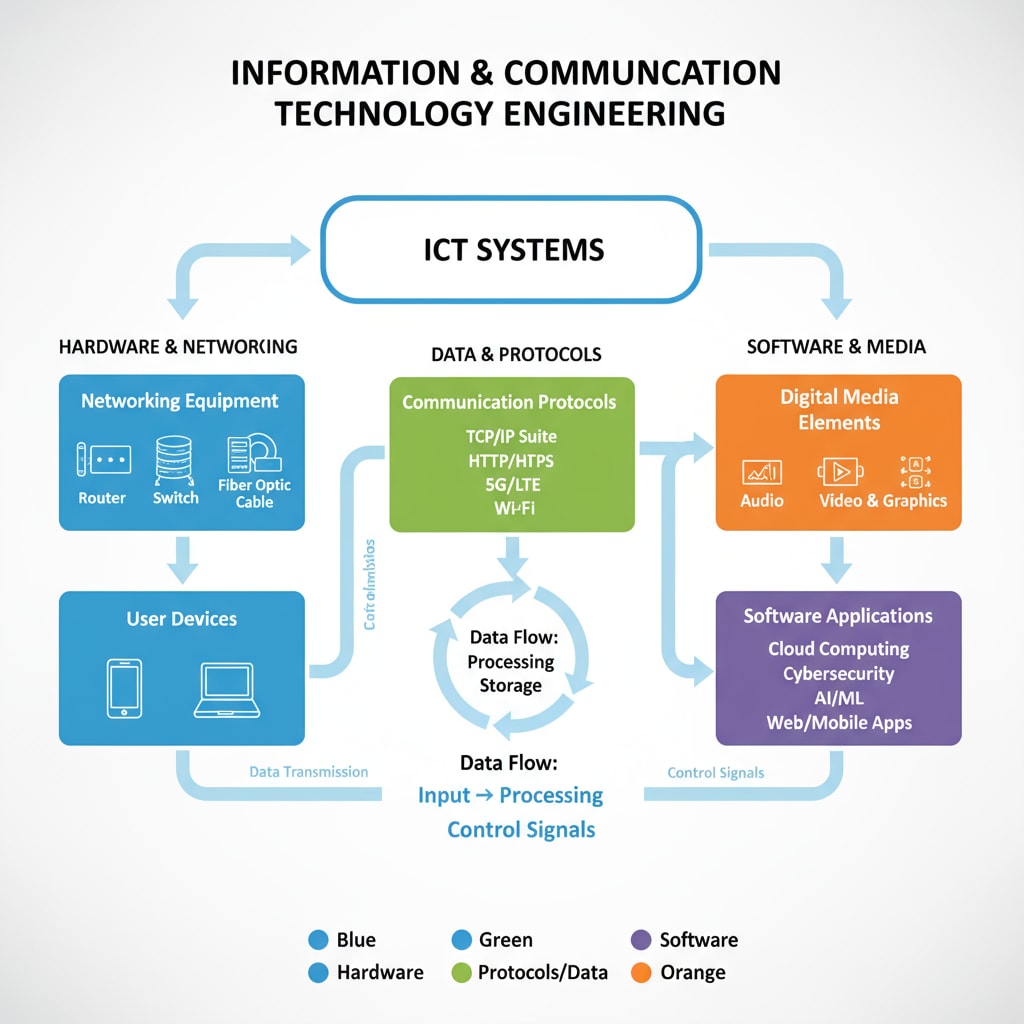When it comes to professional selection in information technology and planning for future career development, students often face a challenging decision among various IT-related majors. Among the popular choices are Information Systems Engineering (ISE), Information and Communication Technology Engineering (ICT), and Artificial Intelligence (AI). This article aims to provide a comprehensive analysis to help students make an informed decision.

Understanding Information Systems Engineering (ISE)
ISE focuses on the design, development, and management of information systems. It combines elements of computer science, business, and engineering. Graduates in ISE are equipped to analyze business needs and create efficient information systems to meet those requirements. For example, they might design an inventory management system for a large retail chain. According to Wikipedia’s entry on Information Systems Engineering, this field emphasizes the integration of technology with business processes. The job prospects for ISE graduates are promising, as organizations across various industries rely on well-functioning information systems. They can work as system analysts, project managers, or IT consultants.
The Realm of Information and Communication Technology Engineering (ICT)
ICT is centered around the technologies that enable communication and information transfer. This includes areas such as networking, telecommunications, and digital media. ICT professionals are responsible for building and maintaining communication infrastructure. For instance, they might set up a high-speed network for a corporate office. As stated on Britannica’s page on Information and Communications Technology, ICT is crucial for the modern connected world. The career opportunities for ICT graduates are diverse, including roles like network engineers, telecom specialists, and multimedia developers.

Artificial Intelligence, on the other hand, is a rapidly growing field. AI focuses on developing systems that can perform tasks requiring human intelligence, such as learning, reasoning, and problem-solving. AI professionals create algorithms and models for applications like facial recognition and autonomous vehicles. The demand for AI experts is soaring, with applications in industries from healthcare to finance. Graduates can pursue careers as AI researchers, data scientists, or machine learning engineers.
Readability guidance: By understanding the distinct features, job prospects, and suitable candidates for each of these IT majors, students can better navigate their professional selection in information technology and plan for a successful career development journey. Whether it’s the business-oriented ISE, the communication-focused ICT, or the cutting-edge AI, each offers unique paths in the dynamic IT landscape.


